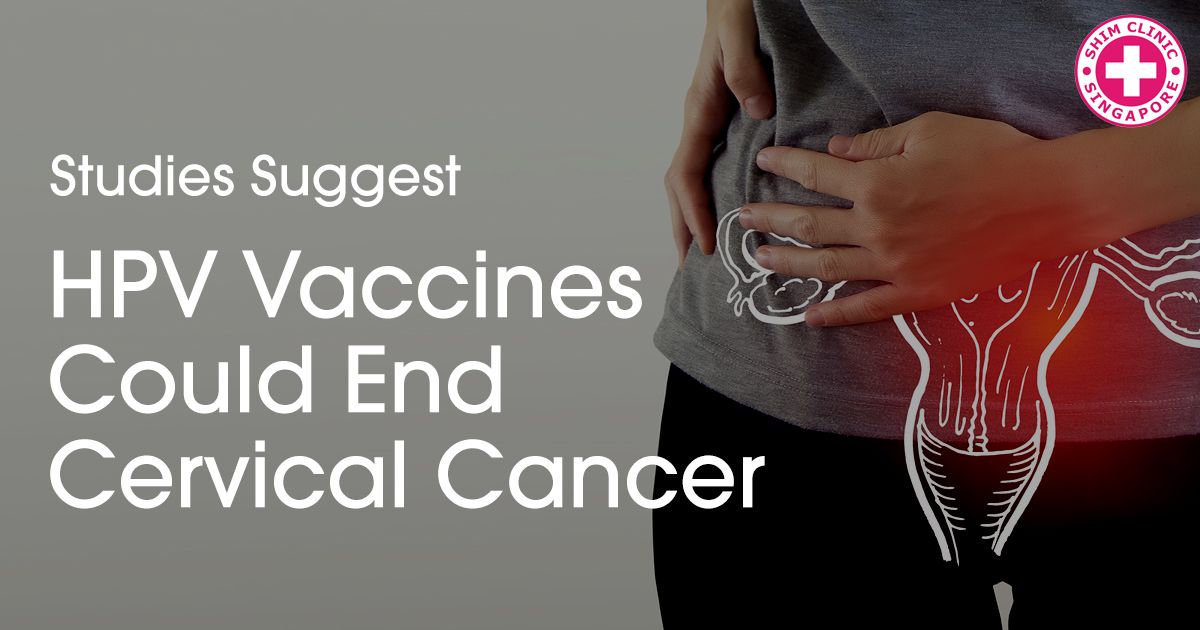The HPV vaccine was introduced only in 2006 but it’s already making an impact. Gardasil was the first HPV vaccine to be launched, followed by other products like Cervarix. New studies today show that HPV vaccines have contributed to a reduction in cervical pre-cancer rates, regardless of the fact that immunisation programs don’t cover all girls and boys yet.
Cervical Pre-Cancer Reduction: The Latest Study
HPV vaccines prevent infections with the human papillomavirus (HPV) – the primary cause of cervical cancer.
HPV spreads through sexual contact and there are multiple viral strains. Two strains in particular – HPV types 16 and 18 – are responsible for causing 70 percent of all cervical cancer cases. Luckily, all of the available and approved vaccines right now target these viral strains, as well as other types of HPV that are responsible for causing genital warts.
A very important new study was carried out in the US to determine whether the introduction of HPV vaccines in 2006 has already contributed to a reduction in the incidence of cervical cancer. The results are more than optimistic.
While only 50 percent of adolescents in the US have received the vaccine, the incidence of cervical pre-cancer in the period from 2012 to 2016 went down 40 per cent in women aged 20 to 24.
What’s even more important – infections with HPV in teenage girls were massively reduced by 86 per cent.
This is the latest study but it’s not the only one establishing a link between HPV vaccination and a reduction in HPV infections/cervical pre-cancer rates.
Cervical Pre-Cancer Down 88% in a Decade
Countries that already have immunisation programmes have initiated research projects to assess the long-term effect of HPV vaccination on cervical cancer rates.
One of the most extensive studies comes from the UK.
The UK launched an HPV immunisation programme among adolescents in 2008. The programme targets girls aged 12 and 13. There’s also a catch-up programme for those who haven’t been vaccinated and who are up to 18-year-old.
Researchers followed the evolution of the programme over the course of a decade. They examined infection rates and cervical pre-cancer incidence in the period from 2008 to 2018. Their findings are similar to what researchers uncovered in the US.
The first group of women to go through the vaccination programme in 2008/2009 has seen an 88 per cent reduction in cervical pre-cancer rate. It’s also interesting to point out another finding – women born during these years who hadn’t receive the HPV vaccine yet were less likely to develop cervical pre-cancer. There’s a simple reason why. Vaccination reduces the risk of exposure and contributes to much higher safety even for those who have not been vaccinated yet.
Infections with high risk HPV strains were also reduced significantly as a result of the immunisation programme.
Because of these findings, medical professionals are optimistic that HPV vaccines could bring on the end of cervical cancer in the future.
According to researchers in Canada, infection rates with HPV types 16 and 18 are already down 83 per cent for teenage girls and 66 per cent for young women. In Canada, vaccination was introduced five to six years prior to the announcement of the findings.
Research suggests that the greatest benefits are observed in countries where at least 50 per cent of adolescents are vaccinated.
Health professionals also stress on the importance of getting boys vaccinated. When the HPV vaccine is administered among boys and men, it reduces the risk of infections and it also helps for some protection against the other types of cancer caused by HPV – penile, mouth and throat cancer.
HPV Vaccination in Singapore
HPV vaccines are readily available in Singapore.
You can choose the two types of Gardasil (the quadrivalent Gardasil that targets HPV 6, 11, 16 and 18, and Gardasil 9 that targets nine HPV strains) and Cervarix.
Typically, three doses have to be administered for optimal results.
It’s best for adolescents to get the vaccine before they become exposed to HPV. Young adults up to the age of 26 could also benefit. If you’re 26 or older, talk to your doctor or visit a facility like Shim Clinic where you’ll get more information about the appropriateness of the HPV vaccine for you.
According to statistics, 2,700 students have been vaccinated against HPV in Singapore so far. This is a part of a free vaccination programme that’s available to adolescent girls in 25 schools. The programme began in April 2019 and hopefully, its scope will increase in the future. The Health Promotion Board (HPB) aims to vaccinate 18,000 girls in 139 secondary schools by the end of the year.
In Singapore, 200 new cervical cancer cases are diagnosed each year. Around 70 women will die from this type of cancer on an annual basis.
The newest findings show just how promising HPV vaccines are. Chances are that such medical advances will help for the eradication of this cancer type in the near future.
If you’re older and you don’t qualify for the school vaccination programmes, get in touch with Shim Clinic. We offer consultations, STD testing and HPV vaccination following the approved guidelines. Relying on others to protect you is not the best option and you should definitely take charge of your reproductive health.

